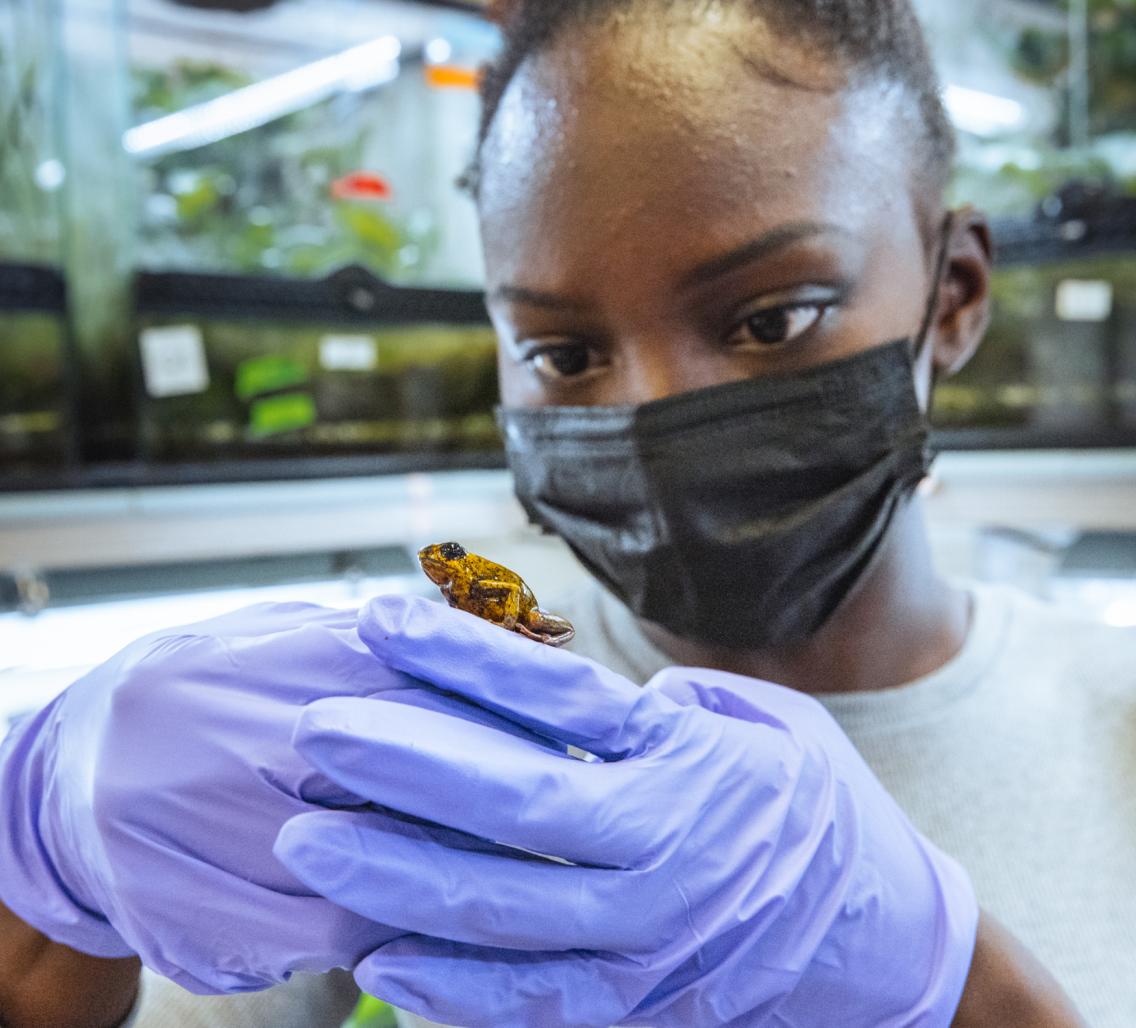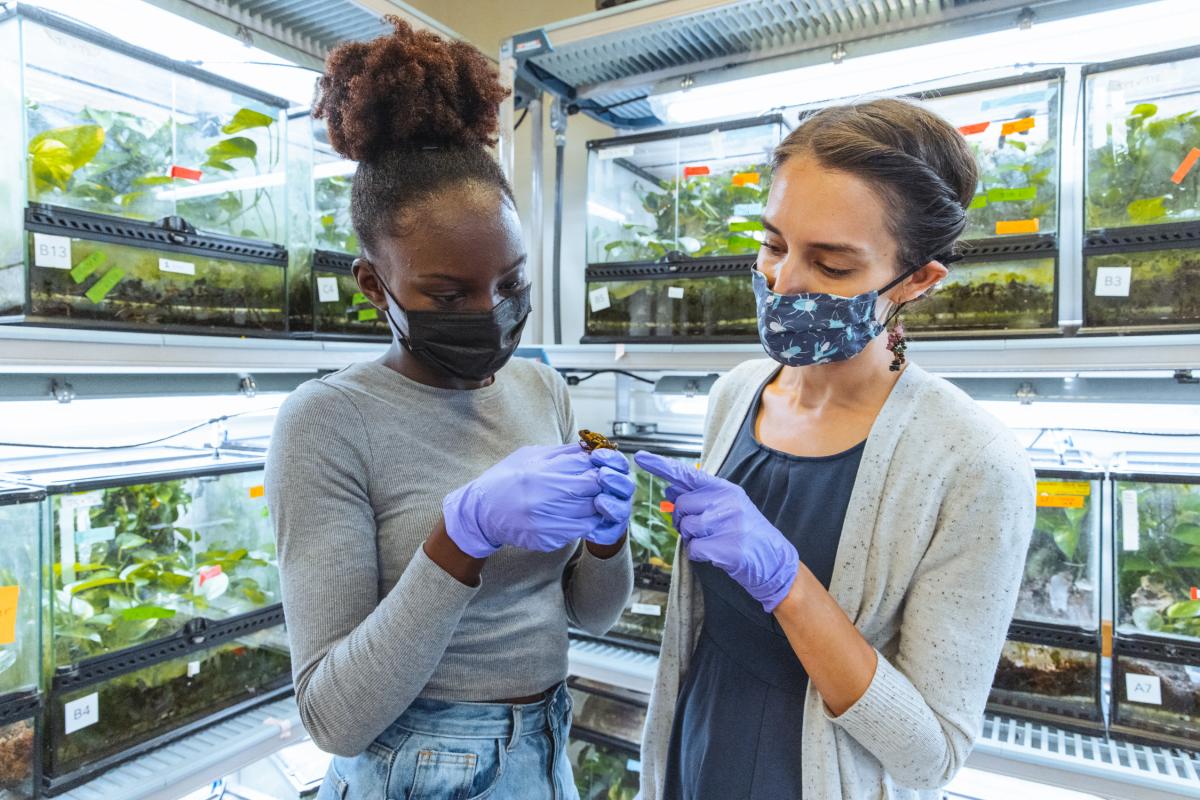NeURO Community College pilot program

By Nicholas Weiler
Our NeURO-CC pilot program partners with local community colleges to support BIPOC trainees to do neuroscience research at Stanford.
The Wu Tsai Neurosciences Institute Diversity, Inclusion, Belonging, Equity, and Justice committee launched this pilot program as an extension of the institute's Neuroscience Undergraduate Research Opportunity (NeURO) program. NeURO was created in 2020 to help Stanford undergraduates without previous laboratory experience thrive in neuroscience research by building skills, confidence and a sense of belonging. NeURO-CC will welcome local community college students of color to participate in this program alongside their Stanford peers.

Fellow Moremi Mabogunje and faculty mentor Lauren O’ Connell handle a Dyeing Poison Frog (Dendrobates tinctorius) in the Laboratory of Organismal Biology. Photo by Andrew Broadhead.
At the end of the 2020 fall quarter, two students from Foothill Community College in Los Altos Hills were nominated for the program by the counselors of the Umoja and Puente learning communities at Foothill, which serve primarily Black and Latinx students, respectively. We helped pair the students with labs for their full-time neuroscience summer research experience.
DIBEJ members are working to identify possible funding sources to expand this pilot into a larger, self-sustaining program in future years.
The NeURO-CC program was spearheaded in part by Hodan Farah, an undergraduate who transferred to Stanford from Foothill and was part of the first NeURO cohort in 2020.
"When I first got to Stanford I felt insecure and overwhelmed, but the NeURO program built my confidence that there was a place for me in neuroscience research. I also knew there were many other Foothill students who had just as much potential but haven't had the same kind of opportunity,” Farah said. “I hope this program can help other students like me break down elitist ideas about who belongs in neuroscience, and that it creates an opportunity for Wu Tsai Neuro to get to know more black and brown students and to find ways to break down the barriers they face in a way that makes neuroscience at Stanford more accessible."

Fellow Temiloluwa "Temi" Babalola studies the genetics of Parkinson's disease with graduate student mentor Cindy Lin in the lab of Monther Abu-Remaileh.
Labs interested in hosting students from under-represented backgrounds in science — including future NeURO-CC students — are encouraged to add a post to Wu Tsai Neuro’s undergraduate neuroscience research directory.
The NeURO-CC program is supported in part by the Office of Community Engagement’s seed funding.